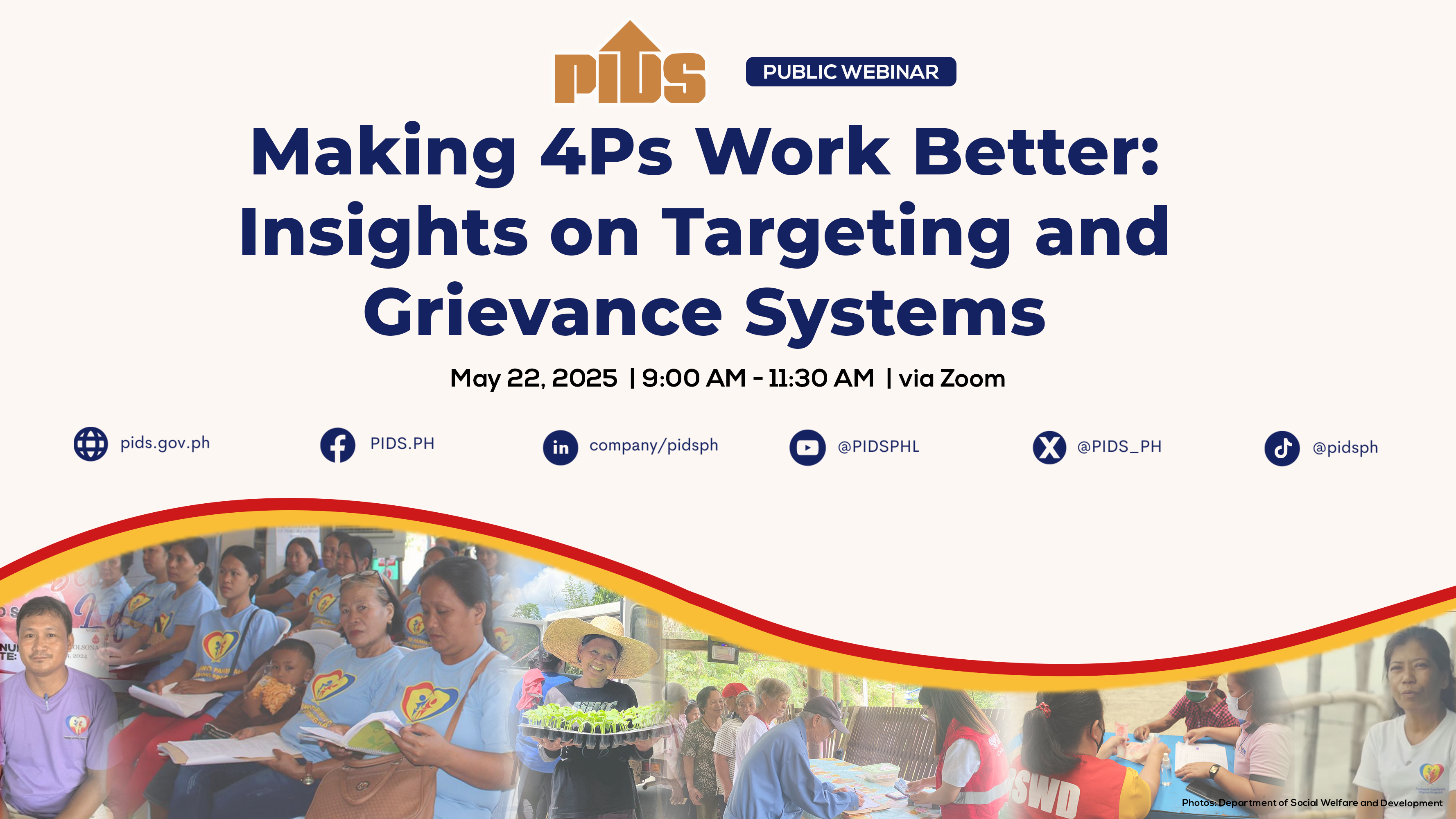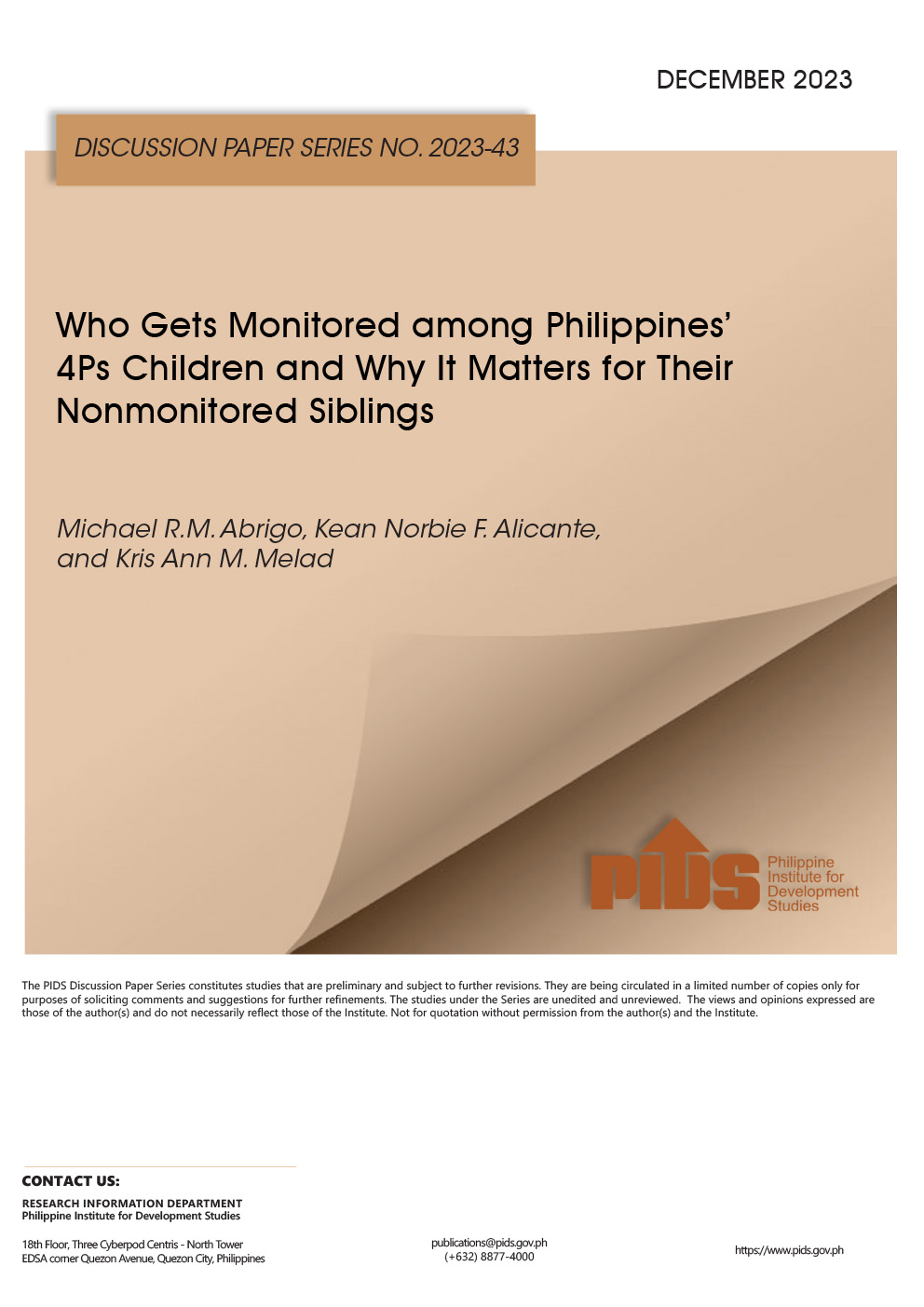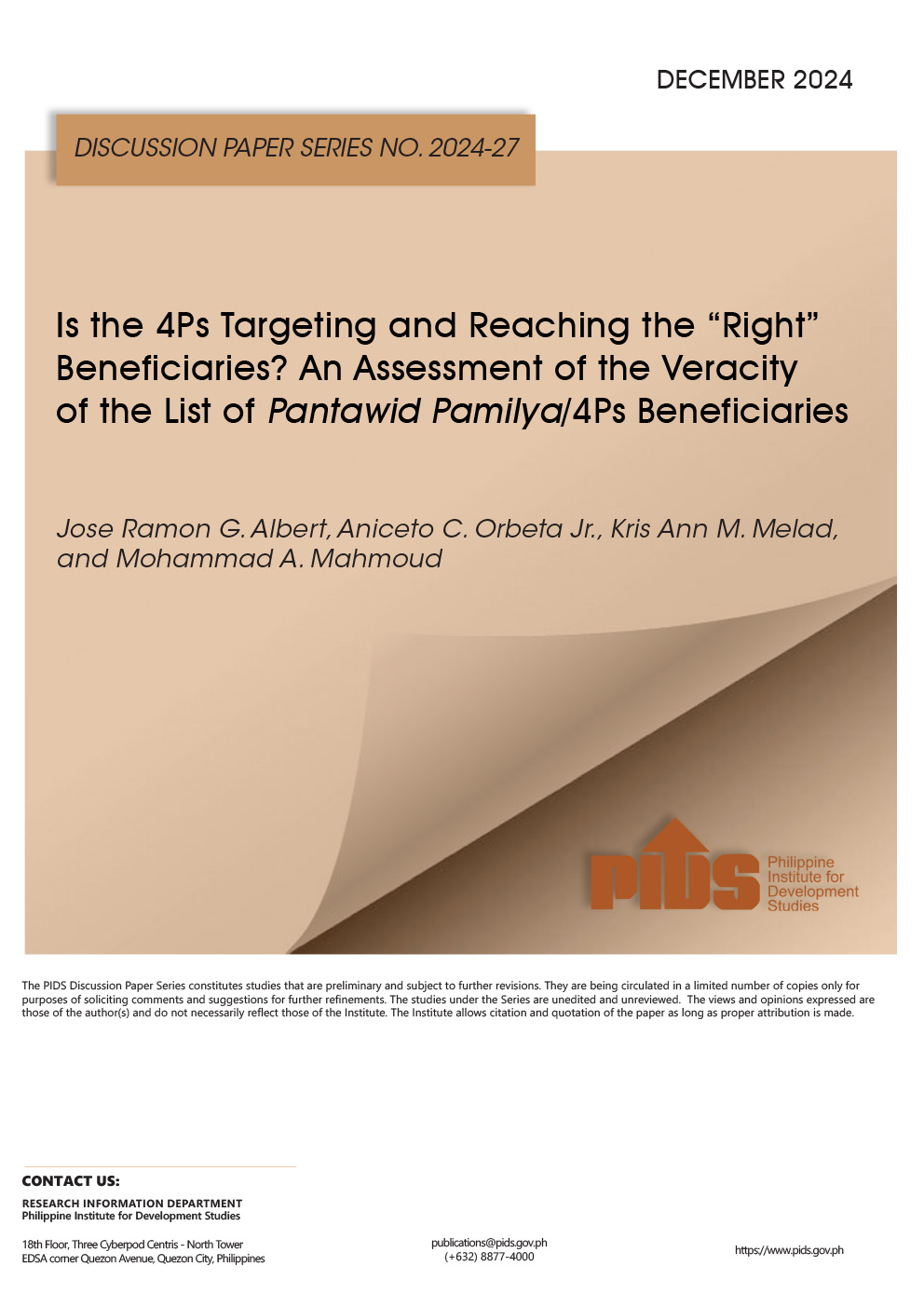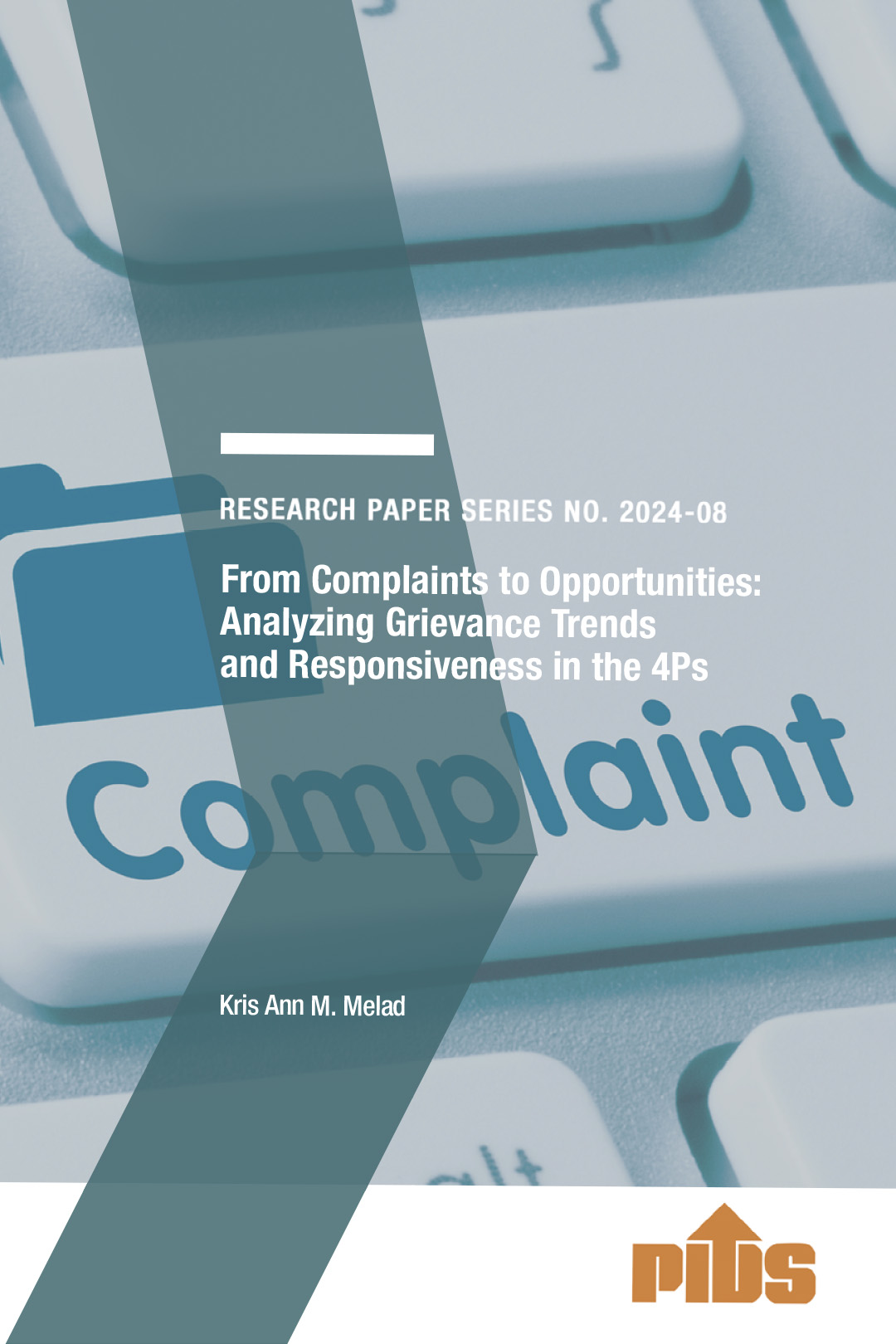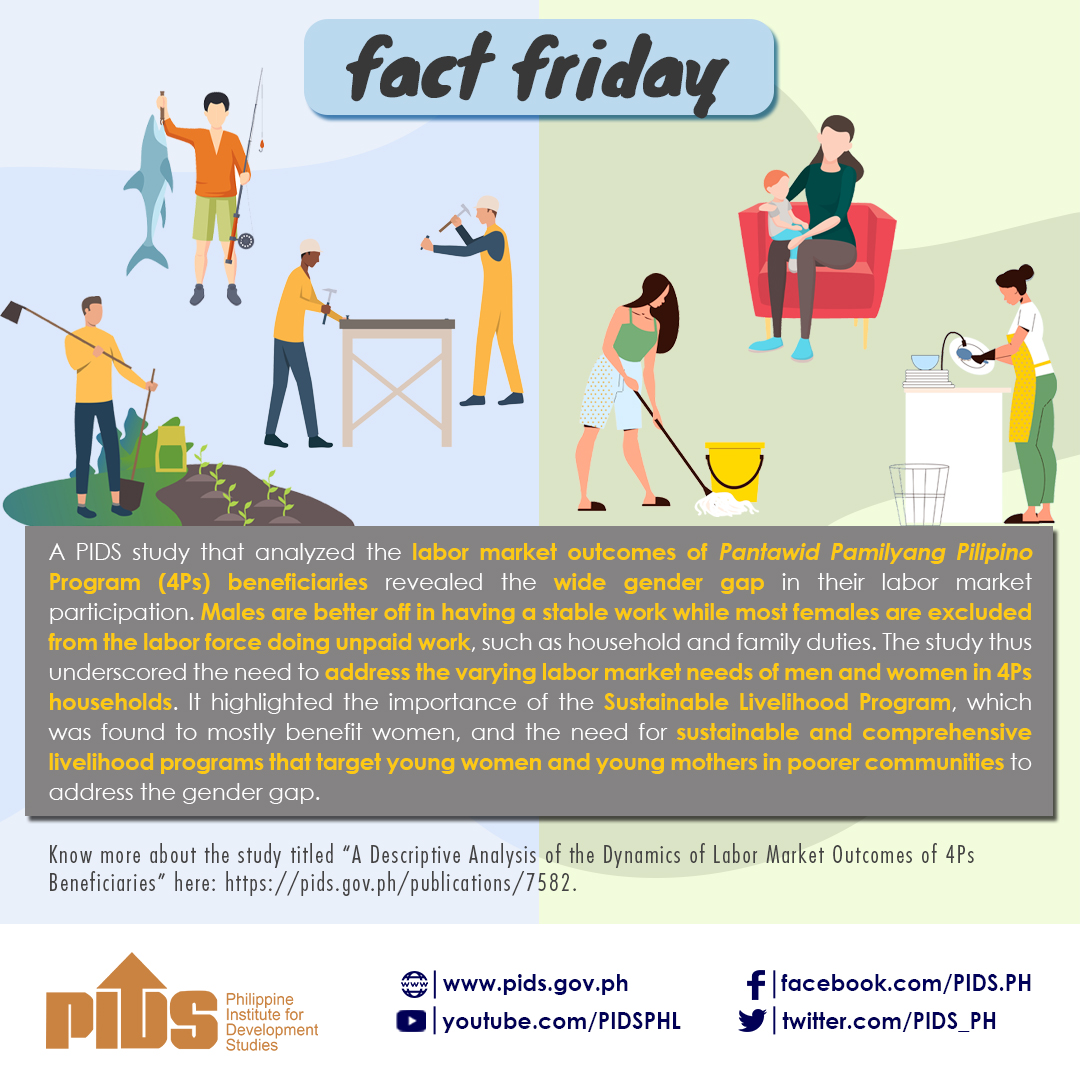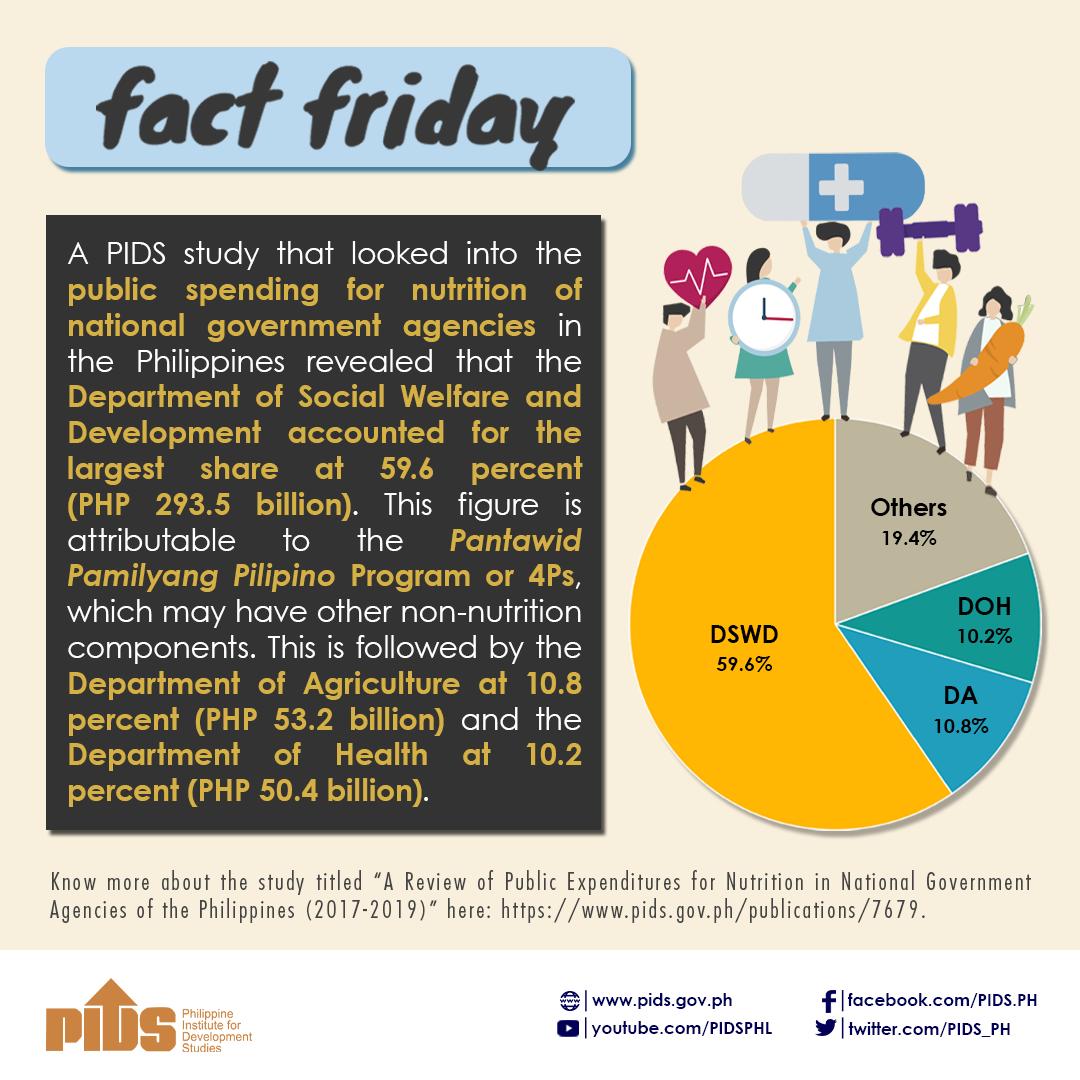
A recent study presented by the Philippine Institute for Development Studies (PIDS) reveals that more than 1.1 million complaints were filed by beneficiaries of the Pantawid Pamilyang Pilipino Program (4Ps) between 2014 and 2022.
The data showed that most complaints were related to delayed payments, system inefficiencies, and a lack of public awareness that continue to affect the delivery of cash aid to poor households.
The study titled “From Complaints to Opportunities: Analyzing Grievance Trends and Responsiveness in the 4Ps” examined the government’s Grievance Redress System (GRS) – the primary tool for handling complaints, requests, or suggestions of beneficiaries on the country’s flagship anti-poverty program.
“The GRS eventually became the default social accountability mechanism for social protection, particularly in Conditional Cash Transfer programs,” said PIDS Supervising Research Specialist Kris Ann Melad during a webinar on May 22, 2025.
While GRS tools are common in public sector programs, Melad pointed out that their effectiveness often goes undocumented, with many complaints kept internal to implementing agencies.
“There are some beneficiaries who are not aware, and some are only aware of one mode of grievance intake,” Melad noted.
The study showed that although half of all cases were resolved in 12 days, certain complaints, especially inclusion requests, took over a month on average.
Further, the study noted that complaint spikes after major events such as Typhoon Yolanda, the COVID-19 pandemic, and system downtimes in 2016.
Voices from the ground
Annabelle Luna, president of the Samahan ng mga Nagkakaisang Pamilyang Pantawid and a 4Ps beneficiary, gave voice to what the numbers mean on the ground.
“Inclusion and exclusion errors still affect daily updates. Years passing without receiving grants deeply affect lives,” she said.
Luna emphasized the urgency for better public awareness and quicker grievance resolution.
Legislative push for reform
House Committee on Poverty Alleviation Secretary Ma. Lourdes Mendoza pointed to long-standing issues such as late grant releases and inconsistent payout amounts.
“Justice delayed is justice denied,” she emphasized.
Mendoza reported that over one million households were suspended, with more than 800,000 revalidated but still without aid.
She called for better data-sharing across agencies, updated databases, and more training for case managers.
Mendoza also pushed for empowering parent leaders, emphasizing, “People’s participation should be optimized,” and closed with a firm call for preventive action to do it right.
Behind every grievance is a story
For the Department of Social Welfare and Development (DSWD), grievance reports serve as more than just operational feedback.
“Grievances are more than just numbers. They are narratives—behind every complaint is a family seeking clarity, fairness, or resolution,” said DSWD Beneficiary Management Division Chief Augustus Lito Narag.
He further explained that complaint spikes often reflect societal shocks or institutional shifts. “They are stress signals responding to institutional change, technological failures, or rising expectations,” he added.
Despite ongoing efforts toward digitalization, Narag noted that in-person grievance submissions remain the preferred mode for many.
“What they seek is not just resolution but dignity, explanation, and accompaniment,” he explained.
Watch the forum playback at https://bit.ly/pidslive052225 or read the full study at https://bit.ly/pidsdp2023-25. — RTG

